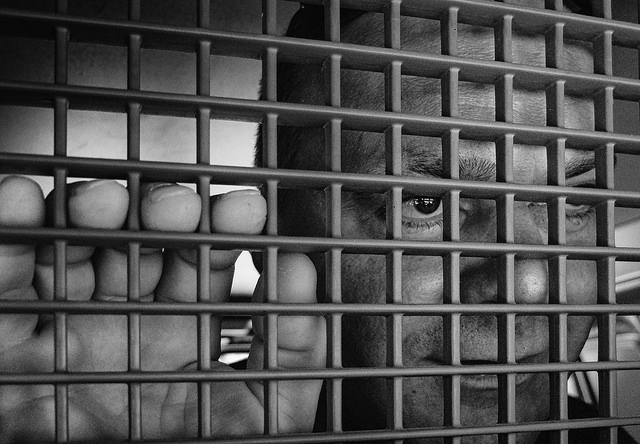By Caryn York
Senior Policy Advocate, Job Opportunities Task Force

Prison by Zlatko Vickovic with Flickr Creative Commons License
UPDATED 4/11, 8 a.m. After a long day of intense conference committee negotiations Saturday, Maryland’s House and Senate — recently at odds over key provisions of the Justice Reinvestment Act — finally agreed to strong compromise legislation that changes the way we treat those who have committed crimes in the best interests of a just society. As the only nonprofit representative of the Justice Reinvestment Coordinating Council, I urge lawmakers to approve and adopt this thoughtfully developed legislation.
Last week, the House of Delegates endorsed an amended version of the Justice Reinvestment Act with a strong vote of 105-31, representing support from across Maryland. With only hours left in the 2016 legislative session, the bill has now moved through each chamber, been negotiated in conference committee, and is headed to the full Senate and House of Delegates for final approval.
The House version, HB1312, incorporated the coordinating council’s top priorities, including strengthening parole release and community supervision, while taking Maryland a step forward in abandoning archaic mandatory minimums.
On the other hand, the Senate version, SB1005, expanded expungement access to formerly incarcerated persons seeking employment despite a criminal record. Combining these versions ensures that this important legislation remains as impactful as possible.
Ten years of data
For six months, the bipartisan intergovernmental coordinating council analyzed 10 years of state corrections and sentencing data to better understand who we have been sending to prison, for how long, and why. Representing a diverse perspective of criminal justice stakeholders that included legislators, judges, prosecutors, defense lawyers, law enforcement and advocates, the council crafted solutions for Maryland that would hold offenders accountable while reducing the state’s nonviolent incarcerated population.
Simply put, the council recommendations were based on data, research, evidence-based practices, and serious consideration of public safety.
Our recommendations became these cross-filed bills. Over the past two months, the legislature’s two chambers passed drastically different amendments to the bills. As amended, SB 1005 has been touted as “restrained” and “prudent”, whereas HB 1312 is “too lenient.”
The reality is that the council recommendations taken together will both strengthen public safety and reduce incarceration. The statistics speak for themselves: 58% of our state prison admissions are nonviolent offenders; possession with intent to distribute and simple drug possession are among the top 10 offenses for people coming in the front door of our prisons.
Almost 60% of all parole revocations are due to technical violations of the conditions of supervision (like missing an appointment or failing a drug test, rather than for a new criminal conviction).
Consequences of incarceration
The Job Opportunities Task Force is all too familiar with the far-reaching consequences of incarceration on low-income families, toiling to eliminate employment barriers for Marylanders struggling with a criminal record.
For years, men and women – young and old – have come to Annapolis, often in tears when describing their personal experiences:
- coping with a drug addicted family member who can secure a prison bed but not treatment;
- a spouse who was the jailhouse barber but is prohibited from barbering when released because of his criminal record;
- a medically debilitated grandfather who has spent the majority of his life behind bars and poses no risk to public safety;
- or a nephew serving a mandatory minimum sentence for selling drugs to feed his addiction or his family.
Time and again, we see families struggling to survive when loved ones are locked up. When finally released, they struggle to secure and maintain a stable job with a criminal record. The message is the same over and over again: Overreliance on incarceration is not working.
We must be smarter
Moreover, 81% of inmates serving mandatory minimum sentences for nonviolent drug offenses are black. With these results, we can no longer afford to be “restrained” or “prudent” when crafting corrections policies. We must be smarter.
As amended in the House, the bill represents Maryland getting “Smart on Crime.” The bill:
- gives incentives to all nonviolent inmates to participate in programs to reduce recidivism;
- secures administrative parole while retaining judicial discretion when there is a public safety concern;
- limits the time that parolees and probationers are re-incarcerated for non-criminal conduct;
- and eliminates mandatory minimum sentences for nonviolent drug offenders (excluding volume dealers and kingpins), while strengthening sentences for gang leaders.
If adopted, Maryland can expect fewer people in prison, millions in savings, and declining crimes rates.




Recent Comments